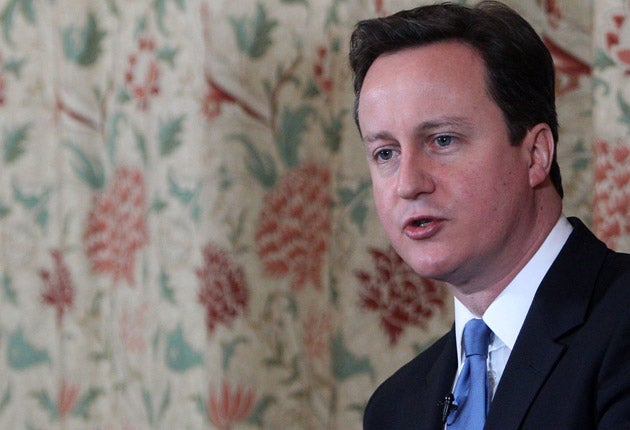PM paves way for privatisation of public services

Almost all public services could be opened up to private companies under plans being put forward by Prime Minister David Cameron today.
In an article for the Daily Telegraph, the PM said that "complete change" was needed in the public sector to improve standards for users.
A new presumption that private companies, voluntary groups and charities should be allowed to bid to provide services would allow the Government to transform public services without having to legislate repeatedly to allow different providers to get involved.
The changes, to be set out in a White Paper within the next fortnight, could allow non-public providers to run schools, hospitals and council services such as maintaining parks, adult care, special schools and roads maintenance.
Outside providers would be offered payment-by-results contracts, increasing their earnings as the quality of services improves.
Mr Cameron wrote: "We will create a new presumption - backed up by new rights for public service users and a new system of independent adjudication - that public services should be open to a range of providers competing to offer a better service.
"Of course, there are some areas - like national security services or the judiciary - where this wouldn't make sense. But everywhere else should be open to real diversity."
Mr Cameron said that the changes would release the public sector from "the grip of state control", ending the era of "old-fashioned, top-down, take-what you're-given" services.
The Government hopes that the plan will reduce bureaucracy, improve quality and save money.
But it is certain to be opposed by Labour, the unions and many users of public services.
Writing in the Telegraph, Mr Cameron said opening up public services to private sector providers was an important part of his "Big Society" agenda.
"I would argue that our plans to devolve power from Whitehall, and to modernise public services, are more significant aspects of our Big Society agenda than the work we're doing to boost social action," said the PM.
"We will soon publish a White Paper setting out our approach to public service reform. It will put in place principles that will signal the decisive end of the old-fashioned, top-down, take-what-you're-given model of public services.
"And it is a vital part of our mission to dismantle Big Government and build the Big Society in its place."
Mr Cameron said that over the last decade, cases of "bureaucracy overruling common sense, targets and regulations overruling professional discretion, and the producers of public services overruling the people who use (and pay for) them" had become the norm rather than the exception.
And he said that at the same time, Britain had been "slipping against comparable countries" in areas such as cancer survival rates, school results and crime.
"That's why we need a complete change, and that's what our White Paper will bring," he said. "The grip of state control will be released and power will be placed in people's hands. Professionals will see their discretion restored. There will be more freedom, more choice and more local control."
Provision of public services should be open to "everyone who gets and values the importance of our public service ethos", said Mr Cameron.
Instead of having to justify the introduction of private competition to areas of public service provision like the NHS and schools, the state will in future have to explain why it should be allowed to operate as a monopoly.
Wherever it is possible, ministers will aim to increase choice "whether it's patients having the freedom to choose which hospital they get treated in or parents having a genuine choice over their child's school", he said.
And decision-making power will be devolved to the lowest possible level, giving more people "the right to take control of the budget for the service they receive".
"Of course, the state will still have a crucial role to play: ensuring fair funding, ensuring fair competition, and ensuring that everyone - regardless of wealth - gets fair access," said Mr Cameron.
"But these important responsibilities for central government must never become an automatic excuse for returning to central control. That's why our Open Public Services White Paper is so important. The principles it sets out will make it impossible for government to return to the bad old days of the standard state monopoly."
Anticipating criticisms of his proposals, Mr Cameron insisted: "This is not about destabilising the public services that people rely on; it is about ensuring they are as good as they can be.
"These are practical reforms, driven by a clear rationale that the best way to raise quality and value for money is to allow different providers to offer services in an open and accountable way.
"Our public services desperately need an injection of openness, creativity and innovation. These reforms will bring that - and that is why I am determined to see them through."
Join our commenting forum
Join thought-provoking conversations, follow other Independent readers and see their replies
Comments
Bookmark popover
Removed from bookmarks